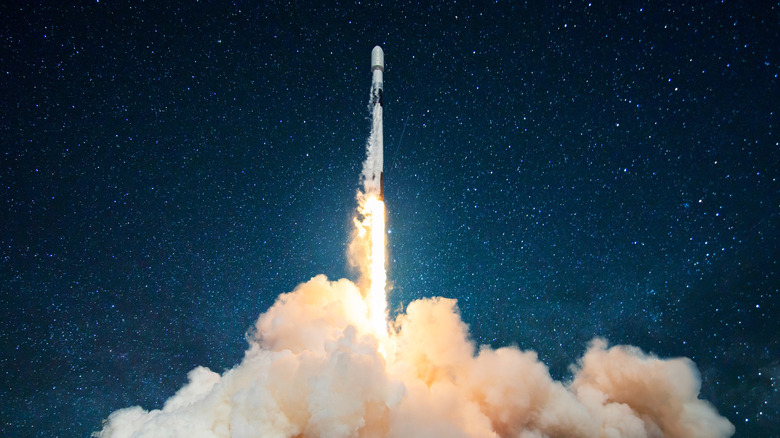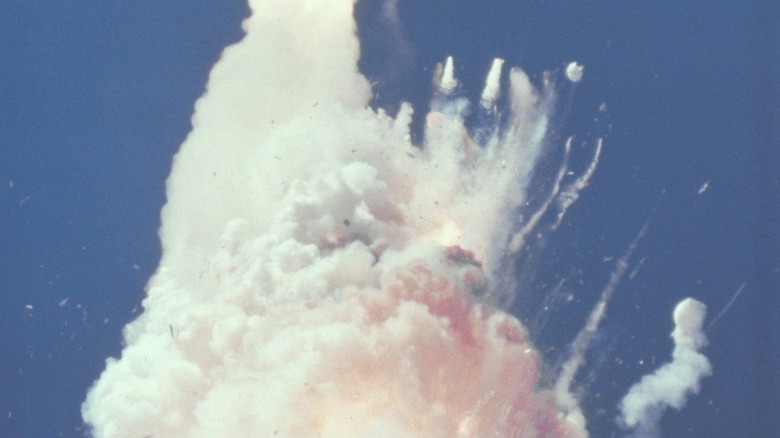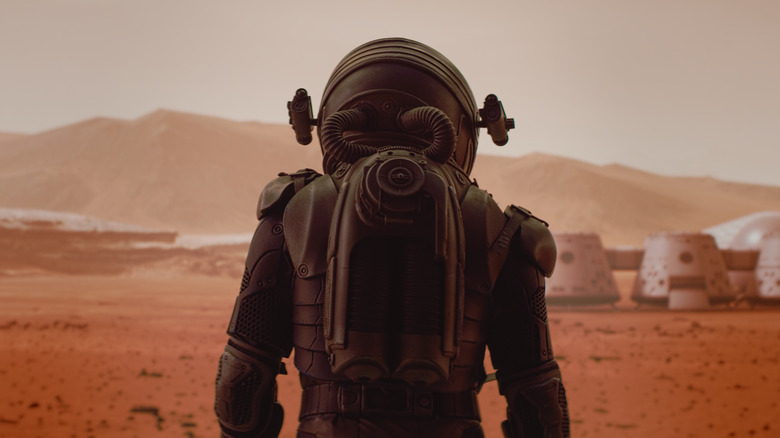Have Any Dead Bodies Been Recovered From Space?
The first human to be launched into space was a Russian named Yuri Gagarin, who was sent into orbit in 1961, according to CNN. Since then, according to The New York Times, over 600 people have followed the cosmonaut into the final frontier, with their missions lasting anywhere from minutes to months.
Considering that hundreds of people have been launched into space over the past seven decades, it should come as no surprise that not all of them have returned to Earth alive. According to Discover, approximately 30 people have died in space exploration-related activities. However, most of those deaths have taken place while a craft was below the Kármán line, which is to say, the arbitrary boundary, approximately 62 miles up, that separates the Earth's atmosphere from space, and still others took place on the launch pad or in pre-flight tests. Only three people are known, for certain, to have died in space. Cosmonauts Georgi Dobrovolski, Vladislav Volkov, and Viktor Patsayev all lost their lives returning home from a weeks-long mission in 1971.
The bodies made it home intact
In June 1971, according to Discover, Dobrovolski, Volkov, and Patsayev completed their mission and boarded a craft set to return home. To observers on the ground, everything seemingly went off without a hitch. However, when crews arrived at the space capsule's landing site, they knocked on the hatch and got no answer. Inside, they found the three men dead, having suffocated (Dobrovolski's body was still warm). Investigators later determined that a valve malfunction at over 100 miles up led to the oxygen being sucked out of the spacecraft, killing the cosmonauts. Adding to the tragedy of this event is the fact that the failing valve was located under the cosmonauts' seats, where they could not reach it. Had they been able to, they might have lived. Meanwhile, the Soviet (and later Russian) space programs have since required their cosmonauts to wear pressurized space suits during re-entry.
Inasmuch as the bodies of the only three people known to have died in space returned to Earth, the answer to the question posed in the title of this article is zero. No bodies have been recovered from space, as there has never been a need, as far as is known.
The Challenger and Columbia astronauts
Although they did not take place in space officially (both accidents happened underneath the Kármán line), there have been two major fatal incidents involving U.S. astronauts dying while their craft were in flight.
On January 28, 1986, as The L.A. Times reports, the space shuttle Challenger exploded in flight, 76 seconds after liftoff. A few weeks later, the crew's cabin, with the remains of the seven astronauts inside, were found at the bottom of the ocean. "We really don't want to say anything else in deference to the families," NASA spokeswoman Shirley Green said at the time.
In 2003, nearly two decades later, the space shuttle Columbia broke apart during re-entry, killing all seven crew members aboard. As The Irish Times later reported, the remains of all astronauts were later found and identified, scattered across parts of Texas and Louisiana. One local resident described finding what he believed was the charred torso of one of the astronauts, calling it "pretty gruesome."
Anyone who dies in space is likely to remain there
In the seven or so decades that we've been sending people into space, the longest such missions have been on the order of several months; early space flights were measured in hours if not minutes. However, the space exploration community has set its sights on Mars, which will require missions of years, not months, to get there and come back, and some visitors to Mars may head there without expecting to return.
As Popular Science reports, this means that it is a matter of when, not if, someone dies in space. And as it turns out, it is looking like if anyone dies up there, their body is going to remain in the cold vacuum of space for all eternity. "I would expect that if a crew member died while on Mars, we would bury them there rather than bring the body all the way home," astronaut Chris Hadfield says. Of course, even up there, great care would have to be taken to ensure that microbes from the deceased atmosphere do not wind up polluting Mars, and the space exploration community will need to come up with a way to handle that as well.



